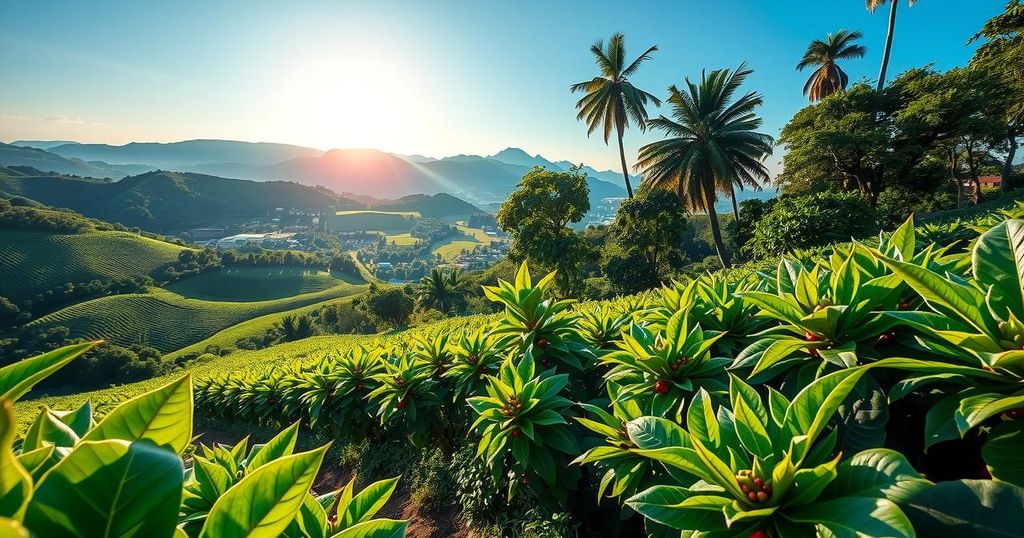Climate change
economics
AGRICULTURE, ALTA MOGIANA, ASIA, AUGUSTO RODRIGUES ALVES, BOSTON GLOBE, BRAZIL, CHINA, CLIMATE CHANGE, ECONOMICS, FRANCA, MEXICO, NORTH AMERICA, RODRIGUES ALVES, SOUTH AMERICA, STARBUCKS, TIA, TIAGO DONIZETE RODRIGUES, UNITED STATES, WEATHER CONDITIONS
Isaac Bennett
0 Comments
The Rising Cost of Coffee: A Crisis from Brazilian Farms
Coffee prices have reached record highs in the U.S. as Brazilian farmers face serious production challenges due to climate change and increased theft. Many farmers report severe losses in harvests, prompting them to implement security measures to protect their diminishing crops. The future of coffee production in Brazil remains in jeopardy due to the rising temperatures that threaten Arabica cultivation.
In southeastern Brazil, coffee prices have surged to an unprecedented $7 per pound in American supermarkets, due to adverse climatic conditions affecting coffee production. With rising global demand, Brazilian farmers, such as Augusto Rodrigues Alves, report severe shortages, underscoring the precarious state of coffee farming amidst climate change. The international pricing of Arabica has skyrocketed, as farmers increasingly face challenges from extreme weather patterns and criminal activities targeting their diminished crops.
Farmers in regions like Alta Mogiana have suffered losses ranging from one-third to two-thirds of their harvests, with some losing their entire crop. The resulting scarcity has led to desperation; for instance, Tiago Donizete Rodrigues, another farmer, indicates a need to purchase coffee from others to serve his clients. The challenges continue as severe drought conditions have prompted some farmers to adopt drastic measures, such as over-pruning their coffee plants to preserve what little is left.
Coffee culture in Brazil is deeply ingrained, often defining social interactions and daily activities. However, climate conditions are risking the viability of the coffea arabica plant, which requires specific temperatures and rainfall levels to thrive. Reports suggest that by the turn of the century, many areas in South America may become unsuitable for its cultivation, with severe losses expected in southeastern Brazil due to rising temperatures and prolonged drought.
In an ironic twist, as prices soar, instances of coffee theft have proliferated; authorities reported significant thefts of coffee, displaying a transition of criminal activities into the coffee sector. Farmers are now compelled to adopt stringent security measures, fearing for their diminishing yields. Some have taken to employing armed guards and surveillance technology to safeguard their crops from escalating threats, transforming the rural landscape into a fortified environment.
The escalating prices of coffee in the U.S. are primarily reflective of severe supply shortages from Brazil, the world’s largest coffee producer, due to extreme climatic challenges. With Arabica cultivation becoming increasingly threatened by climate change, the coffee market is facing a transformative shift. As farmers contend with both environmental issues and criminal activities, the future of coffee production remains uncertain, compelling a reconsideration of existing farming practices and security measures.
Original Source: www.bostonglobe.com




Post Comment